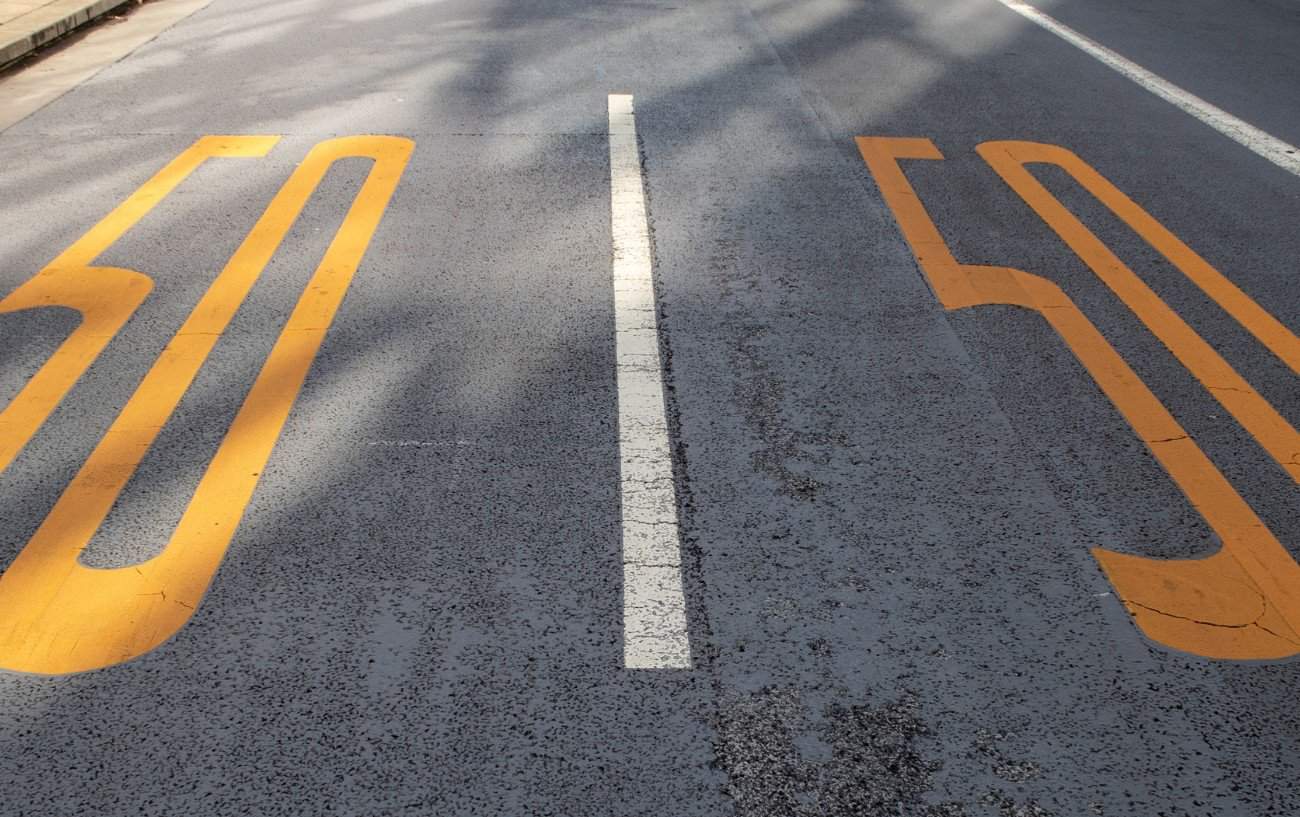Exactly how far is a 50k in miles?
50 kilometers is 31.07 miles.
Only 5 more miles than your regular old road marathon. Sounds easy, right? Well, all of that depends on a whole lot of factors we are going to delve into.
In some cases, those 5 more miles can feel like a breeze if they are flat and comfortable, but 5 more miles on the trails? A whole new ballgame.
In this article, we are going to take a look at:
- Jumping from a marathon to a road 50k
- Taking the leap from a road marathon to a trail ultra 50k
- Factors to consider when choosing a trail 50k
- Trail 50k comparison chart
- How to train for a 50k ultra
Ready to take this awesome leap?
Let’s jump in!

The Marathon to 50k leap
If you are reading this article, you are probably a marathoner looking to take that next big step, a 50k race. When looking for your next challenge, the first thing you should decide is whether you want to run a 50k road race, or face a much more significant challenge, and run those 50k or 31 miles on the trails.
This decision will make a massive difference in how you train for your race.
The Road 50k
When taking the step from a road marathon to a road 50k, the ideal situation would be to have a few marathons already under your belt. This way, you will already have experience in essential marathoning skills such as:
- Following a marathon training program
- Consistency in pacing yourself over 26 miles
- A race hydration and nutrition routine
- Your marathon times

Having experience in these aspects will make the transition to 50k, or 31 miles, much easier than starting from zero.
Runners must follow macro and micro training cycles so they can gradually increase mileage. Skipping over the necessary process and jumping distances will be debilitating and may not allow great success when racing.
If you choose to run your first 50k on the road and have already run a few marathons, your training will only need to increase slightly because the total distance is just a bit more.
Road 50k Training
Adding 10 – 15% more volume to your current plan will be more than enough to prepare you for those extra 5 miles. This can be incorporated into your training as easy pace mileage and tacked onto your warm-ups and cool-downs throughout the week.
If your peak-week long run before your marathon was 32k, your longest run training for the 50k could be 35-37k. These two details should give you the means to finish your 50k road race no problem!

However, if you want your 50k to be a trail race, it’s a whole different story. A flat course won’t be nearly as challenging as a trail ultra.
Let’s take a look at why.
Ultra trail 50k
When jumping from road running to trail running, there are numerous factors to consider that you don’t often contemplate while running on the road. These should be considered when choosing your first 50k trail race.
Vertical Gain
The factor that makes the most difference in minutes per kilometer is the vertical gain found in a race. Most road marathons are pretty flat, and hills often runnable.
Trail races usually have a lot more vertical gain with challenging inclines. Many of these hills reach the point of not being runnable at all, but hikeable. Here, your paces will increase dramatically.
To have an idea of how to calculate how much longer you will take on a hilly course rather than a flat one, we can use ITRA’s kilometer effort conversion:
For every 100 meters of vertical gain, add the equivalent of 1 flat kilometer of time.
For example, if you run on a flat course, on average at 6:00min/kilometer, and the race is 50k + 1200 meters of total vertical gain, you need to calculate your time for a 62-kilometer flat race.
62 x 6 = 6 hours and 15 minutes! This doesn’t include any other factors we will discuss, such as tricky terrain, altitude, and weather. Still, you can get a better idea of your starting point.
As you can see, your marathon pace and your 50k ultra pace vary significantly just taking the hills into consideration.

Tricky Terrain
Running on asphalt is pretty safe and simple, but when you jump into the trails, you can come across just about anything! We’re talking gravel, mud, roots, rocks, beach, rivers, jungle, the list goes on and on.
It depends on how adventurous the race is, but I have memories of climbing out of caves and crossing rivers with ropes. Therefore, look into all race details before signing up.
The reason terrain type is so important is that it will significantly increase your pace per kilometer. You will be running at the same effort level. However, you will be advancing at a much slower pace.
When training for an ultra 50k, you will want to practice running on the terrain you will be racing in so you get comfortable with it and improve your technical skills. This way, you will run more efficiently and be able to advance a bit faster.

Altitude
When looking into a trail race, take into consideration the altitude you will be running at. Suppose you do not live at high altitudes but are choosing a race that is at or reaches high altitudes. In that case, it can affect your running significantly.
With less oxygen, your body needs to work harder to pump oxygen to your muscles. This results in a higher heart rate and labored breathing which will slow you down.
Weather
Weather is also an important factor to consider when choosing a race. Hot and humid climates can cause your body to work harder at cooling itself off, in turn, slowing your pace.
Jack Daniel’s VDOT pace calculator has an option to calculate pace based on factors such as altitude and temperature. However, it is important to know these paces are still based on flat road running and do not consider hills or terrain.
Don’t be intimidated by these circumstances, but understand and train carefully for them. That way, you’ll be well-prepared!

Let’s take a look at just how much trail 50k races can vary:
Race Comparison: The Rut 50K & The Cave Creek Thriller 50k
When choosing your first 50k, look at the different aspects of the race, and think twice before choosing the one with 3000 meters of vertical gain! It will be challenging no matter what, so be sure you choose something you will enjoy.
Let’s take a look at the conditions of a beginner trail 50k and a very challenging 50k trail race:
| Race | Elevation Gain | Altitude | Terrain | Climate | Course Record |
| The Rut 50k, Montana | 3,200 mt 10,500 ft | 2,210 mt -3,415 mt 7,250 ft – 11,200 ft | Gravel roads, forested single track trails, alpine ridge lines, Lone Peak summit, extremely steep and technical hills | Extreme weather possible, be prepared for changes due to mountainous location | Male: 5:09 (but it is held by Kilian Jornett!) Female: 6:13 |
| The Cave Creek Thriller 50k, Arizona | 851 mt 2,792 ft | 427 mt- 732 mt 1,400 ft – 2,400 ft | Mostly gravel paths | Pleasant temperatures 40 -60 degrees F | Male: 3:57 Female: 4:25 |
Looking at the chart, The Rut is substantially more difficult in all aspects. It has incredibly technical and, at times, treacherous terrain, immense vertical gain, high altitude, and a chance of extreme weather.
Whereas in The Cave Creek Thriller, the terrain is less complicated and much closer to sea level, there is little vertical gain, and the weather is cool and comfortable!
These differences can affect total times significantly, and the preparation for each race varies greatly. When choosing your first 50k, do the research and compare races to determine which would be the best challenge for you to take on, given your experience and level.

Tips For Training for a Trail 50k
Using the different tools mentioned, plus your current average running times and paces, you can estimate how long you will take to run your first 50k. By taking these times into consideration, you can plan accordingly how much more volume you will need to implement into your training.
If you can simulate your race conditions, you can use mileage when training. Still, since trail conditions are constantly varying, time-based training can be more accurate and better prepare you. It can avoid overtraining or undertraining.
Remember, training for a trail 50k isn’t just about upping your total volume; it’s about preparing for everything you will encounter.
For the best race experience, try and train as much as possible in the conditions you will race in. Get accustomed to technical trails, running uphill, downhill, at altitude, in the heat, whatever your specific race conditions call for.
It is also essential to focus on your fueling; as you will be running more time, you will need to compensate with more carbohydrates and hydration.

If you have only run road marathons before, you are most likely used to hydrating as you fly through the aid stations. When running trail, running vests are often carried to bring along everything you will need during the ultra.
Instead of blowing through a marathon hydration station and grabbing a cup, we usually fill bottles for the next leg of the race. This will also tack on minutes to your total race time.
So, are you ready for your first 50k or 31-mile race? The most important thing to take away from all of this information is that you want your first 50k to be a positive experience, so choose something that you will enjoy. Then, when you have crossed the finish line of your very first one, you’ll be dying to start making plans for the next.
Happy training!





